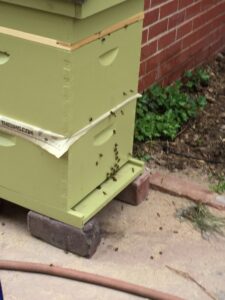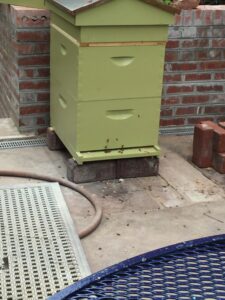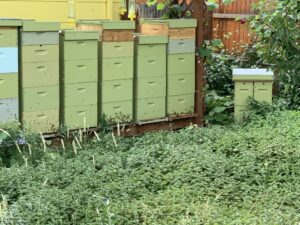Beekeeping in Denver
Urban Beekeeping
We started keeping bees in 2016, before we moved into Finnerty Street.

Beehive Adam from 2016

Beehive Eve 2016
Keeping bees in the city isn’t so difficult. In terms of care and work, it’s on the opposite end of the spectrum of milking cows. The bees require attention several times per year versus twice daily for a herd of milk cows.
Sometimes people ask me about “natural beekeeping.” They want to keep a hive in their backyard and ignore it, just live and live, born free style. That’s a lousy idea. The bees will run out of space and swarm into your neighbor’s attic. That will be a big mess. Those that remain will quickly die of natural causes, like Varroa Mites.
What Do You Do With All That Honey?
If you wanted to raise bees for honey to sell, you could, but we haven’t. We give it away to our kids teachers, friends, employees. Our honey yield for the past several years has been:
asdf
Honey Bees Don’t Sting, Do They?
When people interested in keeping bees inquire, my first question is always, “How do you feel about being stung by bees?” That’s generally the end of the conversation.
Normally the honeybees don’t sting, but when you take their honey, they generally go on the warpath.
Mary and Nicholas were once beekeepers. They were each cured after a single sting. Hanna also used to be a beekeeper. After a dozen stings over several years, she developed an allergy. Now just one sting will impact her breathing and cause days of swelling. I get stung several times per year, on average. I have been stung as many as ten times at once-that’s spooky, just too much poison at once.
Oh, and if you don’t mind being stung, you’ll love Russian bees:

The Russians Invade Newton Street!
